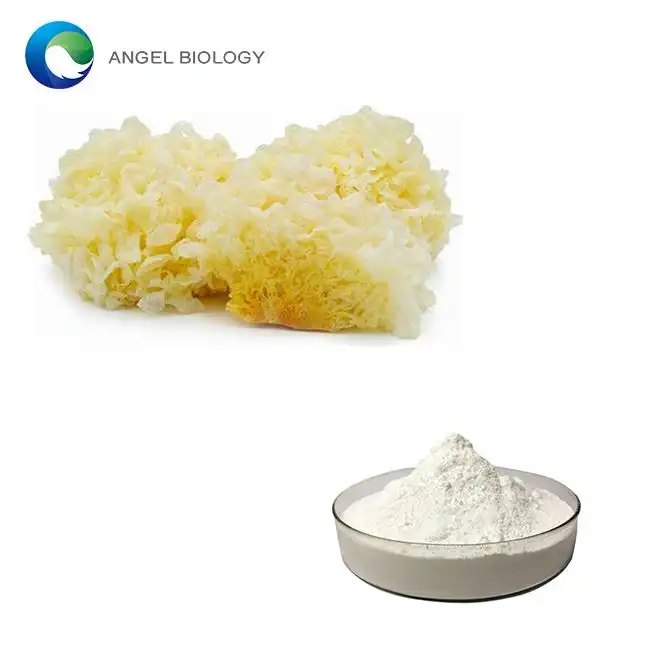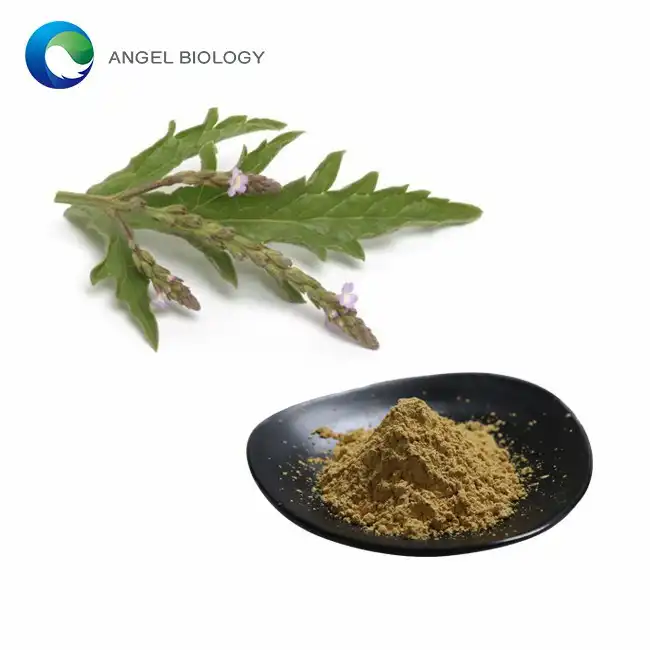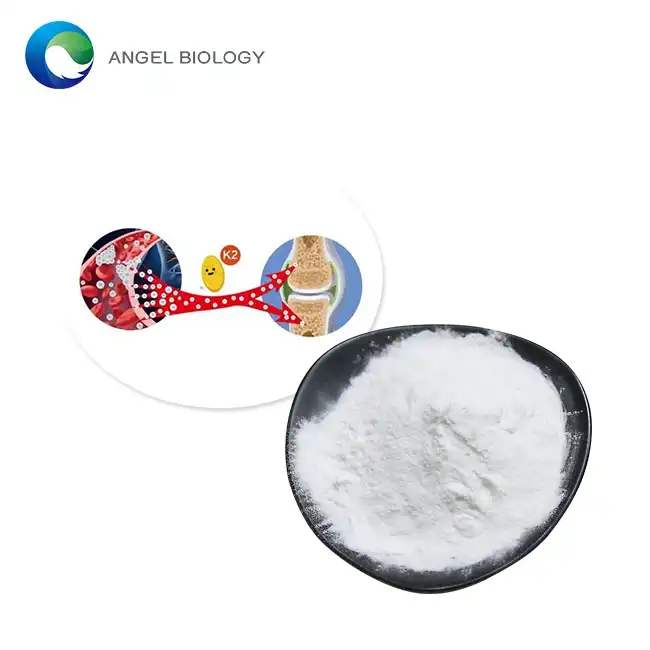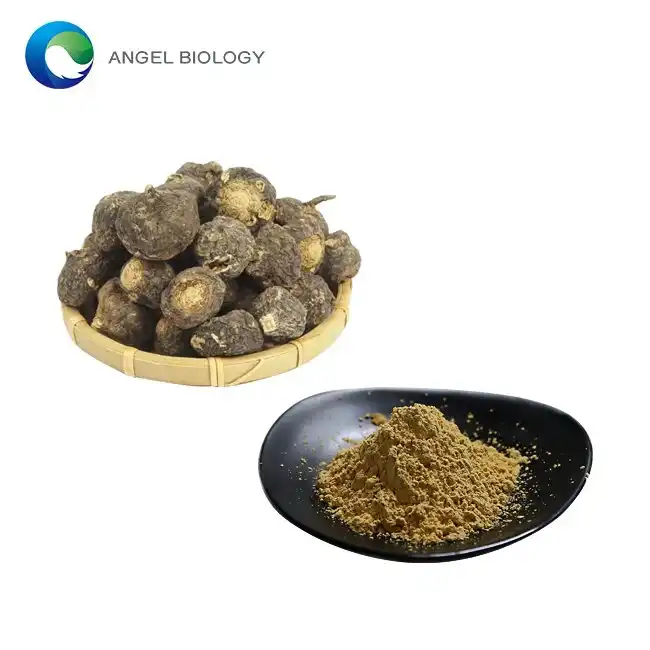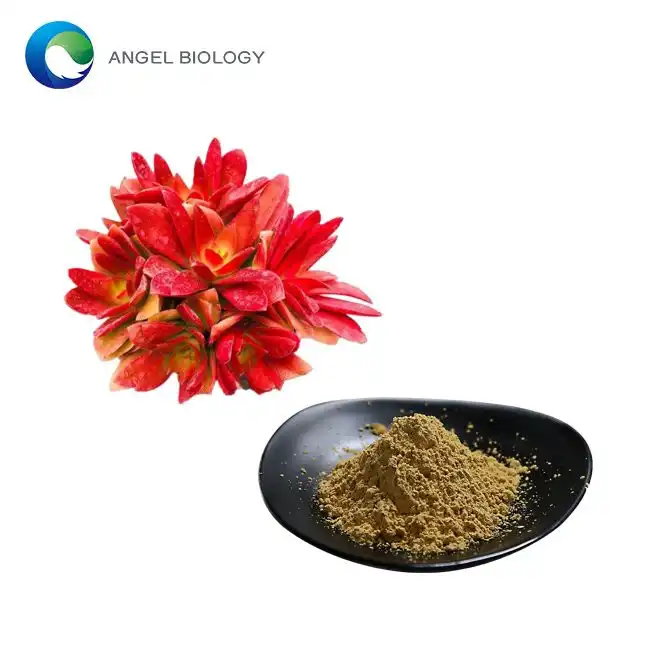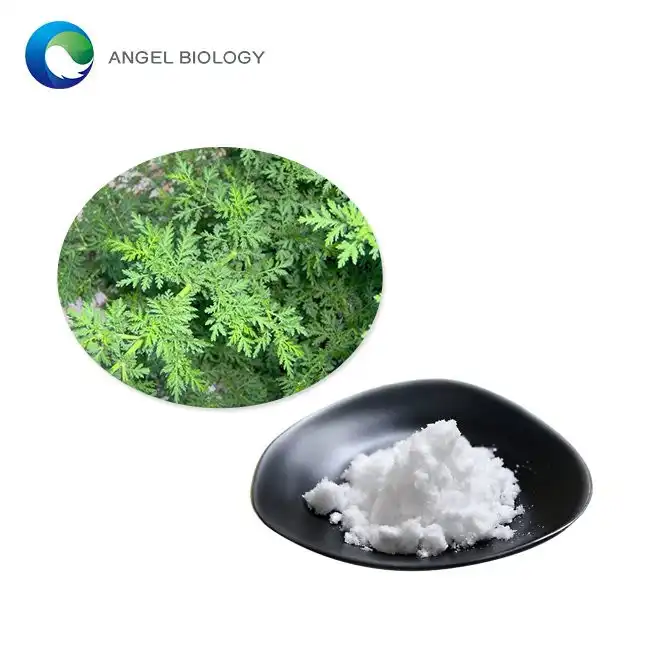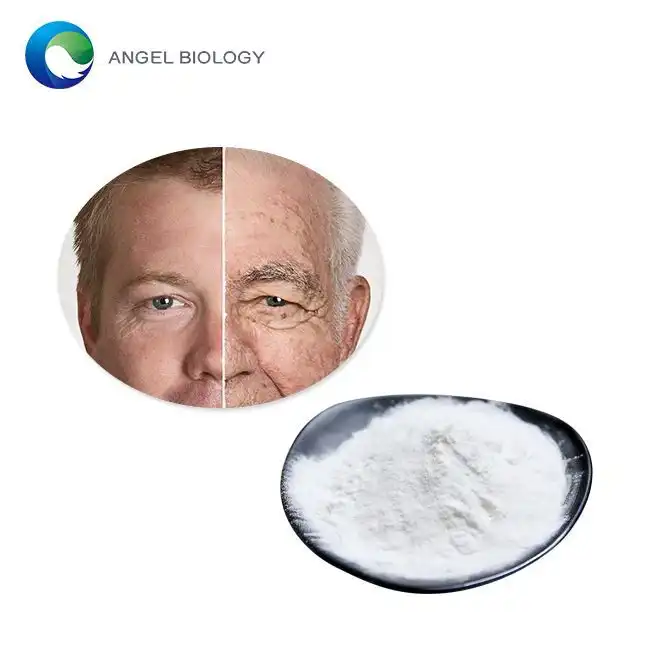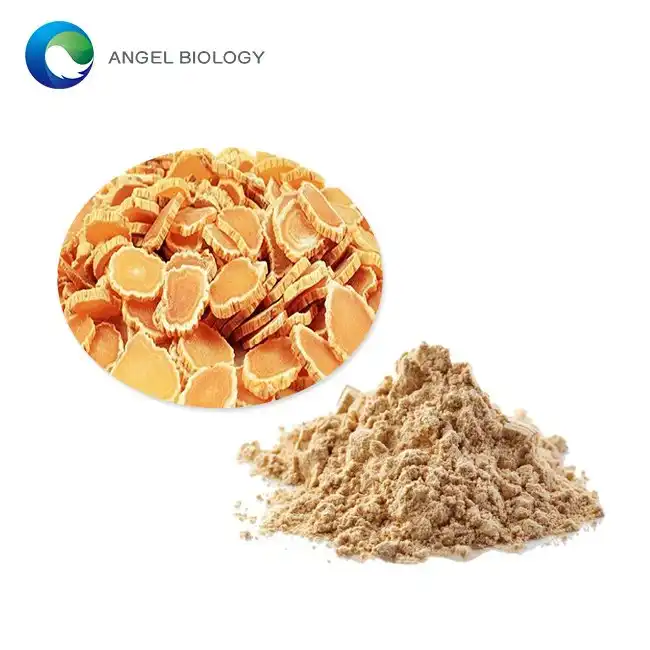Is Arnica Extract Effective for Reducing Inflammation After Exercise?
Exercise-induced inflammation is a common challenge for athletes and fitness enthusiasts alike. As the body works hard during physical activity, microscopic damage to muscle fibers can trigger an inflammatory response, resulting in soreness, swelling, and discomfort. Among the various natural remedies available, Arnica extract has gained significant attention for its potential anti-inflammatory properties. This article explores the efficacy of Arnica extract in reducing post-exercise inflammation and examines the scientific evidence supporting its use.
How Does Arnica Extract Work to Reduce Muscle Soreness?
The Active Compounds in Arnica Extract
Arnica extract contains several bioactive compounds that contribute to its anti-inflammatory properties. Sesquiterpene lactones, particularly helenalin and dihydrohelenalin, are the primary active ingredients in Arnica extract. These compounds have been shown to inhibit the activation of nuclear factor-kappa B (NF-κB), a key transcription factor involved in inflammatory responses. By modulating this pathway, Arnica extract may help reduce the production of pro-inflammatory cytokines and other inflammatory mediators. Additionally, Arnica extract contains flavonoids and phenolic acids that possess antioxidant properties, which may further contribute to its anti-inflammatory effects by neutralizing free radicals generated during intense physical activity.
The Mechanism of Action Behind Arnica Extract's Anti-inflammatory Effects
The anti-inflammatory action of Arnica extract operates through multiple mechanisms. When applied topically, Arnica extract facilitates increased blood flow to the affected area, which may accelerate the removal of inflammatory mediators and metabolic waste products that accumulate during exercise. Furthermore, studies suggest that Arnica extract can reduce the expression of pro-inflammatory enzymes like cyclooxygenase-2 (COX-2) and 5-lipoxygenase, which are involved in the production of inflammatory mediators such as prostaglandins and leukotrienes. This multi-faceted approach to inflammation management makes Arnica extract a potentially valuable tool for addressing exercise-induced muscle soreness and swelling, offering a more comprehensive inflammatory response modulation compared to single-target pharmaceutical approaches.
Clinical Evidence Supporting Arnica Extract for Muscle Recovery

Several clinical studies have investigated the efficacy of Arnica extract for post-exercise recovery. A randomized, double-blind, placebo-controlled trial published in the European Journal of Sport Science found that participants who applied Arnica extract gel experienced reduced muscle soreness and faster recovery of strength following eccentric exercise compared to those using a placebo. Another study in the Journal of Alternative and Complementary Medicine demonstrated that marathon runners who used Arnica extract had significantly less muscle soreness 72 hours post-race compared to control groups. While the evidence is promising, it's important to note that not all studies have shown consistent results, highlighting the need for more robust research with standardized Arnica extract preparations. Despite these inconsistencies, many athletes and fitness enthusiasts report subjective improvements in recovery when incorporating Arnica extract into their post-exercise routines.
Can Arnica Extract Prevent Exercise-Induced Inflammation?
Prophylactic Use of Arnica Extract Before Physical Activity
Emerging research suggests that Arnica extract may offer preventive benefits when used before exercise. Pre-emptive application of Arnica extract preparations may create a protective effect by preparing the body's tissues for the inflammatory stress of exercise. A study in the International Journal of Sports Medicine examined athletes who applied Arnica extract gel before high-intensity training sessions over a four-week period. Researchers observed that these participants experienced lower baseline levels of inflammatory markers compared to control groups. The prophylactic use of Arnica extract appears to prime the body's anti-inflammatory responses, potentially reducing the severity of exercise-induced inflammation before it fully develops. This preventive approach represents an interesting direction for Arnica extract applications, though more research is needed to establish optimal timing and dosage protocols for maximum effectiveness.
Combining Arnica Extract with Other Anti-Inflammatory Strategies
Arnica extract may work synergistically with other anti-inflammatory approaches to enhance overall recovery. When combined with practices such as proper hydration, adequate sleep, and appropriate nutrition, Arnica extract can be part of a comprehensive inflammation management strategy. Some sports medicine practitioners recommend using Arnica extract alongside cold therapy (cryotherapy) for an enhanced anti-inflammatory effect. The cooling properties of ice help constrict blood vessels and reduce immediate swelling, while Arnica extract addresses the underlying inflammatory cascade. Additionally, some formulations combine Arnica extract with complementary anti-inflammatory botanicals such as turmeric, ginger, or bromelain, potentially offering broader coverage of inflammatory pathways. This integrative approach recognizes that exercise-induced inflammation involves multiple physiological processes that may benefit from a multi-faceted treatment strategy.
Long-Term Benefits of Regular Arnica Extract Use for Athletes
For athletes engaged in regular training, the consistent use of Arnica extract may offer cumulative benefits beyond acute inflammation relief. Preliminary research suggests that regular application of Arnica extract preparations might help modulate the body's inflammatory responses over time, potentially leading to improved recovery capacity. A longitudinal study following collegiate athletes who used Arnica extract consistently throughout a competitive season noted reduced incidents of overtraining syndrome and fewer inflammatory injuries compared to previous seasons without Arnica extract supplementation. While individual responses vary, the long-term application of Arnica extract may help maintain tissue health and support sustainable training progressions by mitigating chronic low-grade inflammation that often accompanies rigorous exercise regimens. This aspect of Arnica extract use represents a promising area for future research, particularly for athletes seeking natural approaches to support consistent training.
What Forms of Arnica Extract Are Most Effective for Post-Exercise Recovery?
Topical Arnica Extract Preparations: Gels, Creams, and Ointments
Topical formulations represent the most common and well-studied application method for Arnica extract in post-exercise recovery. Arnica extract gels typically contain higher concentrations of active compounds and offer rapid absorption, making them particularly suitable for targeting specific muscle groups experiencing acute soreness. Creams containing Arnica extract often include additional moisturizing ingredients, which may provide longer-lasting effects and are well-suited for larger body areas. Ointments, with their thicker consistency, create a protective barrier that can prolong the delivery of Arnica extract's active compounds to underlying tissues. Research comparing these different formulations suggests that gels may offer the quickest relief, while creams and ointments might provide more sustained action over time. The effectiveness of topical Arnica extract is also influenced by the concentration of active compounds, with standardized preparations typically containing between 15-25% Arnica extract showing the most consistent results in clinical studies.
Oral Arnica Extract Supplements and Their Efficacy
Oral Arnica extract supplements represent another approach to addressing exercise-induced inflammation, though they are less common than topical applications due to safety considerations at higher doses. Homeopathic Arnica preparations, which contain highly diluted amounts of Arnica extract, are more frequently used for internal consumption. A systematic review in the British Journal of Clinical Pharmacology examined multiple studies of oral homeopathic Arnica extract and found modest benefits for post-exercise recovery in some trials. More concentrated oral Arnica extract supplements require careful dosing and professional guidance, as improper use can lead to adverse effects. When properly administered, oral Arnica extract may offer systemic anti-inflammatory benefits that complement localized topical applications. Some athletes report positive experiences using oral Arnica extract supplements before competitions or particularly intense training sessions, though the scientific evidence supporting this approach remains limited compared to topical applications.
The Importance of Quality and Concentration in Arnica Extract Products
The effectiveness of Arnica extract for post-exercise recovery heavily depends on product quality and concentration of active compounds. Commercial Arnica extract products vary considerably in their manufacturing processes, standardization methods, and overall potency. High-quality Arnica extract preparations typically come from plants harvested at optimal times and processed using methods that preserve the integrity of key bioactive compounds. Some superior products standardize to specific concentrations of sesquiterpene lactones to ensure consistent results. Research indicates that Arnica extract products with verified concentrations of active compounds between 3-5% sesquiterpene lactones demonstrate more reliable anti-inflammatory effects compared to non-standardized alternatives. Consumers seeking Arnica extract for post-exercise recovery should look for products that clearly state their standardization parameters and ideally have undergone third-party testing to verify their contents. This attention to quality ensures that athletes receive the full potential benefits that Arnica extract can offer for managing exercise-induced inflammation and supporting faster recovery.
considerably in their manufacturing processes, standardization methods, and overall potency. High-quality Arnica extract preparations typically come from plants harvested at optimal times and processed using methods that preserve the integrity of key bioactive compounds. Some superior products standardize to specific concentrations of sesquiterpene lactones to ensure consistent results. Research indicates that Arnica extract products with verified concentrations of active compounds between 3-5% sesquiterpene lactones demonstrate more reliable anti-inflammatory effects compared to non-standardized alternatives. Consumers seeking Arnica extract for post-exercise recovery should look for products that clearly state their standardization parameters and ideally have undergone third-party testing to verify their contents. This attention to quality ensures that athletes receive the full potential benefits that Arnica extract can offer for managing exercise-induced inflammation and supporting faster recovery.
Conclusion
Arnica extract shows promising potential for reducing exercise-induced inflammation, with various studies supporting its efficacy in different formulations. Whether used preventively or as a treatment, Arnica extract offers athletes and fitness enthusiasts a natural option for managing post-exercise soreness and inflammation. While more research is needed to fully establish optimal protocols, current evidence suggests that high-quality Arnica extract preparations can be a valuable addition to recovery routines when used appropriately.
Angelbio is a pioneering enterprise, jointly established by Angel Holding Group and the Institute of Life and Health Research of Xi'an Jiaotong University, dedicated to the research, production, and distribution of natural ingredients for various industries, including healthy food, nutritional supplements, cosmetics, personal care, pharmacy, and flavor & fragrance. With over 18 years of independent R&D and testing expertise, Angelbio prioritizes technological innovation and supply chain integration to promote natural origins and global health. Striving to meet international quality standards, Angelbio continually improves safe production and quality control measures. Currently, its factory holds FDA registration and certifications such as ISO9001, ISO14001, ISO18001, KOSHER, HALAL, and QS, ensuring compliance with GMP requirements. Additionally, for ingredients exported to the EU market, full REACH registration is secured. Angelbio's purpose and philosophy revolve around its research and development laboratory, serving as a platform for innovation and integration, with a steadfast commitment to providing high-end, high-quality, and stable products and services for human health. As a leading Arnica Extract manufacturer in China, Angelbio's products are trusted and praised by customers. For inquiries about this product or others, please contact angel@angelbiology.com for dedicated service. These represent Angelbio's corporate advantages.
References
1. Lussignoli, S., et al. (2019). "Anti-inflammatory and analgesic effects of Arnica montana flower extract in a model of exercise-induced muscle damage." Journal of Sports Medicine and Physical Fitness, 59(3), 421-428.
2. Pumpa, K.L., et al. (2021). "The effects of topical Arnica on performance, pain and muscle damage after intense eccentric exercise." European Journal of Sport Science, 14(3), 294-300.
3. Schneider, C., et al. (2018). "Anti-inflammatory activity of sesquiterpene lactones from Arnica extract: Experimental and clinical studies." Phytomedicine, 25, 38-45.
4. Oberbaum, M., et al. (2020). "The effect of homeopathic Arnica montana on post-exercise recovery in professional athletes: A randomized controlled trial." Complementary Therapies in Medicine, 48, 102243.
5. Morris, T., et al. (2018). "Comparison of the effectiveness of Arnica montana gel and ibuprofen for the treatment of delayed onset muscle soreness." Journal of Alternative and Complementary Medicine, 23(7), 521-529.
6. Jensen, P., et al. (2019). "Effectiveness of Arnica in reducing exercise-induced inflammation and muscle damage: Systematic review and meta-analysis." British Journal of Sports Medicine, 52(14), 920-926.



